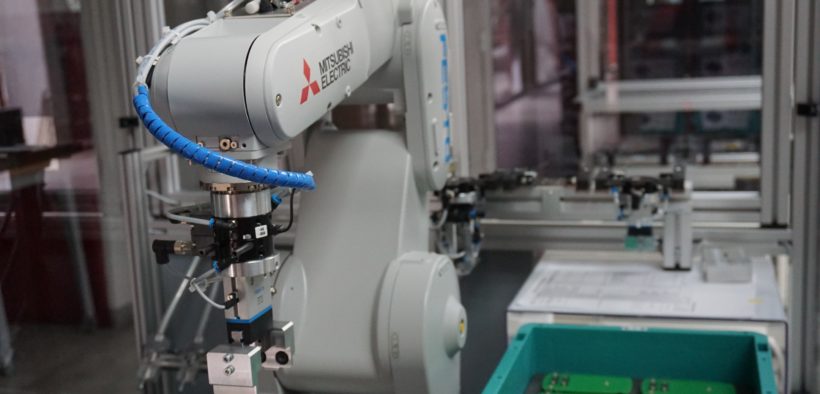The next big thing in manufacturing: People, robots and our changing industry
Share

Our interview with Esther McVicar from the Royal Australian Mint delves into the future of the manufacturing industry (spoiler alert: it’s not robots!).
The rapid change in the manufacturing world should not be underestimated. We Interview industry leader Esther McVicar – Quality Systems Branch Manager, Royal Australian Mint to get the insider insight on how the industry has changed,is rapidly evolving and what’s next on the horizon for the manufacturing supply chain of Australia’s official coin producer.
What is the biggest change you’ve seen in the industry?
The biggest change I’ve seen is increased diversity with our people. Companies have to keep innovating; you can’t rest on your laurels in manufacturing. However, the greatest change I’ve witnessed is in the people side of things. No longer do we employ people and expect them to push a button in a factory. Our people need to be multi-skilled and able to problem solve. We’ve moved a long way from the Taylor and Ford styles of manufacturing. Economic environments are moving much quicker than in the past, therefore we must be flexible and nimble to match those changing conditions.
What impact will robots really have on manufacturing?
EM: The challenge most people in the industry are talking about is AI and more specifically machine learning. Currently, toddlers have better cognition than AI. We don’t have a lot to immediately fear from AI – it’s not going to take over jobs in any meaningful way, soon. It will be assisting in jobs and allow us to do other, more creative thinking or problem solving. In many spaces we are already using machine learning, machine vision, and even robotic process automation. In those places AI is a tool like any other. Our future is AI-assisted, it’s not going to be replaced entirely with AI.
Manufacturing in a large part has already embraced robotics and automation. The new frontier of AI will lead to routine and repetitive tasks being automated. Skilled people in those roles will be freed to do the higher level thinking,problem solving associated with their roles, rather than juggling their time between the routine and repetitive tasks. They will have time to do the things that inspire them.
How do you coordinate stakeholder relationships in the coin supply chain?
EM: The key for us is that we don’t see it as a transactional supply chain – it’s about building a good relationship with our stakeholders. The establishment of good relationships increases flexibility in a supply chain. For example, if you are going to experience a delay you need flexibility to recover so it doesn’t compound. You need to have a good relationship with your stakeholders to manage that.
Our world is changing so rapidly and you can’t predict change. You need to plan for something unexpected to happen and the way you adjust is through relying on those strong relationships throughout the entire supply chain. Beyond transactions, your suppliers and customers are human. It is less about logistics and more about building good relationships.
How do you measure success in the supply chain?
EM: People think money is somehow different but it’s really just another product. We utilise similar metrics as other supply chains. At the end of the day, our ultimate measure is happy customers who think we’re delivering a good service. Because we deal directly with customers, as well as in a more wholesale sense, we get great direct feedback that we love to share with our teams. Our teams go above and beyond to help the customers and this helps us stay on track; knowing we’re making an impact. We also celebrate the achievements and celebrations of our suppliers. This helps us build relationships. We measure success with good data and good relationships.
What do you see is the next big change to manufacturing?
EM: I’ve seen a tremendous shift in maturity in the Australian manufacturing scene. It’s evolving from simple task based roles to much more challenging work that people are more fulfilled in doing. Robotic Process Automation and machine learning will assist to improve manufacturing. It will free people up to do more meaningful work. For us to be successful today, we have to be flexible and agile. We must trust the people we hired to do the job and stand aside to let them do what they do best. Establish trust and build relationships with your people, get out of their way, be empowering.
Esther will be speaking at ASCI 2019: the premier supply chain industry conference on 17-19 September. For more information Esther’s session and the other supply chain visionaries, head to asci2019.com.


















Follow us on social media